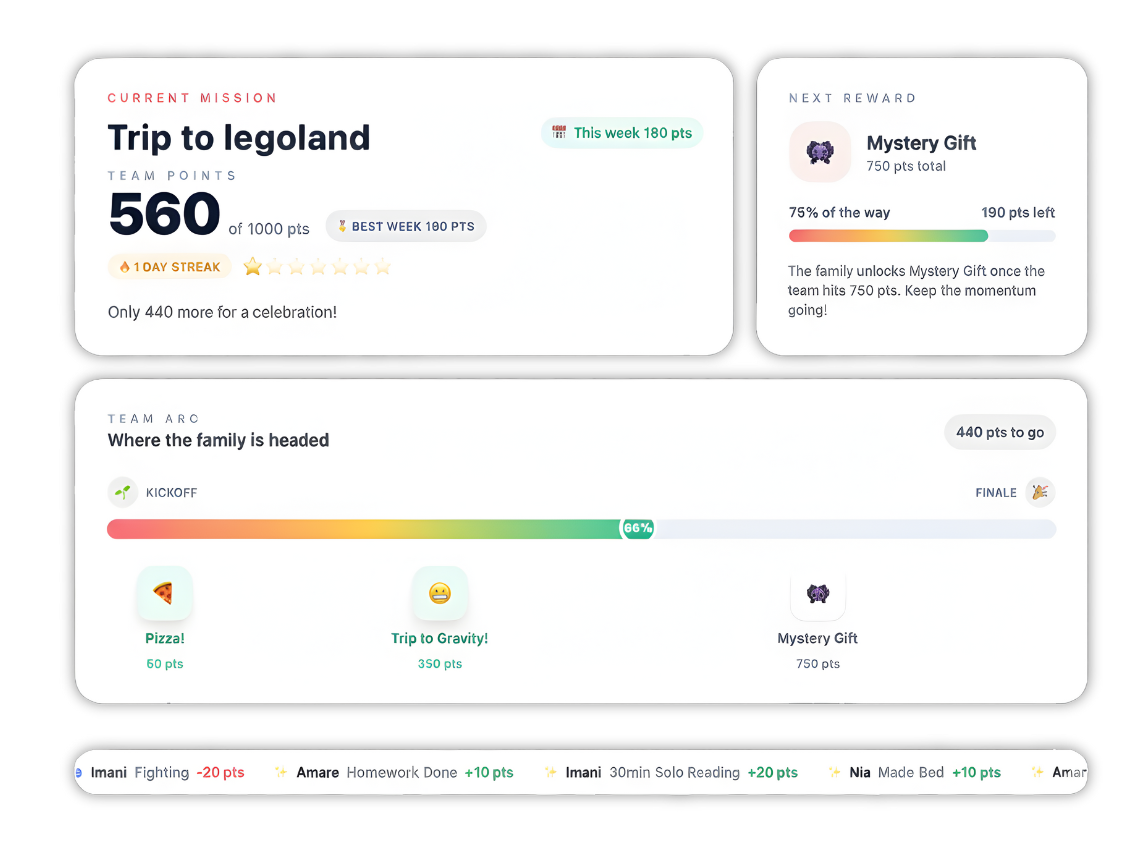The Power of Praise: How to Motivate Your Child Effectively
As parents, we all want our children to succeed and feel good about themselves. Praise can be a powerful tool in this journey. However, not all praise is created equal. Specific and sincere words can motivate children far better than the generic “Good job!” Today, let’s explore how you can use praise to nurture your child’s development, encourage positive behaviors, and build their self-esteem.
Why Praise Matters
Praise can shape your child's behavior and mindset. When done correctly, it reinforces desirable actions and attitudes, making children more likely to repeat those behaviors. Think about it: How do you feel when someone genuinely acknowledges your efforts? It feels uplifting, doesn’t it? Children thrive on that same recognition.
However, generic praise often falls flat. Saying “Good job!” may feel encouraging in the moment, but it doesn’t tell your child what they did right or why it matters. Instead of offering vague compliments, let’s look at how specific types of praise can be far more effective.
1. Specific Praise
Specific praise zeroes in on the exact actions or behaviors you appreciate. Instead of giving broad compliments, highlight what your child did well.
Example:
Instead of saying, “Good job cleaning your room,” you could say, “I really appreciate how you organized your toys and made your bed today!”
Why It Works:
This approach helps children understand exactly what they did right. They feel recognized for their specific actions rather than just receiving a blanket compliment. This targeted feedback not only makes them feel valued but also encourages them to repeat those behaviors in the future.
For instance, if a child receives specific praise for helping out with chores, they may be more inclined to help again next time because they know precisely what action earned them recognition.
2. Effort-Based Praise
When we focus on effort rather than outcomes, we teach our children the importance of hard work and perseverance. Effort-based praise emphasizes the process involved in achieving results.
Example:
Instead of saying, “You got an A on your test!” try saying, “Wow! I can see how much effort you put into studying for that test — your hard work really paid off!”
Why It Works:
This type of praise encourages a growth mindset — the belief that abilities can improve through practice and dedication. When children realize that their hard work is acknowledged regardless of the outcome, they become more motivated to tackle challenges head-on.
Think about sports: If a child practices dribbling in basketball and receives praise for their consistent practice rather than just for scoring points during a game, they’ll be more likely to keep practicing even if their score isn’t perfect yet.
3. Encouragement of Improvement
Recognizing progress is another powerful motivator for kids. Acknowledging how far they've come reinforces their belief in their ability to improve over time.
Example:
Instead of saying simply “Nice hit!”, you might say, “You’re getting better at hitting every day! I remember when you first started; now you’re connecting with the ball consistently!”
Why It Works:
This form of praise highlights growth and progress over time. Children begin to understand that improvement is a journey filled with ups and downs — not just a destination achieved after one successful attempt.
When they see that each small step forward is worthy of acknowledgment, it builds their confidence and inspires them to keep pushing themselves further.
Best Practices for Giving Praise
To ensure that your praise is effective, here are some best practices:
Be Sincere
Genuine praise resonates deeply with children. They can often sense insincerity from a mile away. Only offer compliments when you truly mean them; otherwise, it might undermine the impact of genuine acknowledgment down the line.
Focus on Behavior
It’s essential to focus on specific actions rather than general qualities about your child’s character. For example, instead of stating “You’re so smart!”, try something like “I was really impressed by how well you explained that math problem; you’ve clearly been working hard!” This helps reinforce positive behaviors without placing undue pressure or creating unrealistic expectations.
Be Specific
Avoid falling into the trap of using vague phrases like “Great job!” Instead, specify what exactly you're praising. For instance: "You did an excellent job organizing those books!" This clarity will help solidify positive habits in your child's mind.
Praise the Process
Make sure to acknowledge not just results but also the effort behind them. Celebrate persistence and hard work along with achievements — this teaches kids that success often comes from dedication rather than sheer talent alone.
Wrapping Up
Using specific types of praise effectively fosters motivation in our children while building their self-esteem along the way. When we focus on recognizing individual actions or efforts rather than issuing blanket compliments or solely praising outcomes, we create an environment where kids feel valued for who they are and what they do.
Creating this atmosphere doesn’t require perfection; it simply involves being mindful about how we communicate appreciation for our children’s efforts every day! With these strategies at hand—specific praise highlighting actions taken; effort-based encouragement underscoring hard work; acknowledgment reflecting improvement—you can enhance not only your child’s motivation but also their overall emotional well-being as they grow up!
Investing time into understanding which kinds of motivational feedback resonate best with each unique child allows parents to cultivate lasting confidence within them—one word at a time! As you implement these strategies into everyday life experiences alongside love & support—you’ll find remarkable changes unfolding before your eyes!
